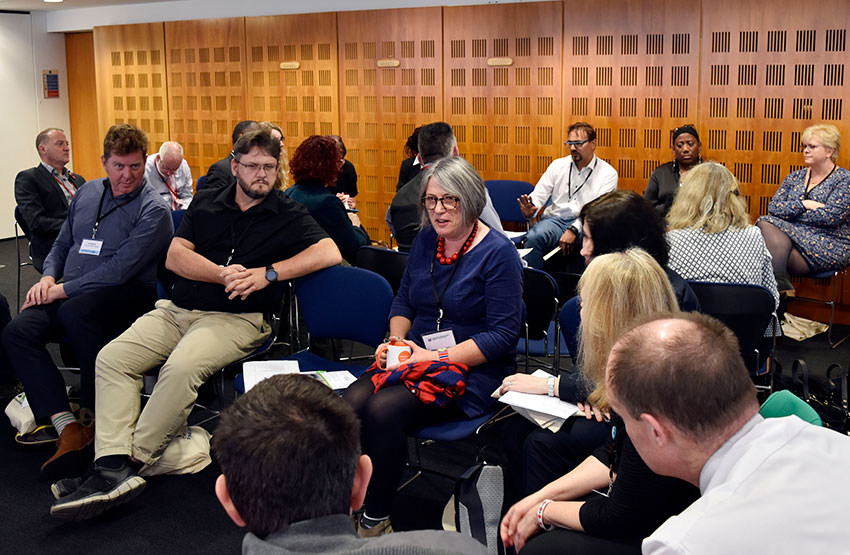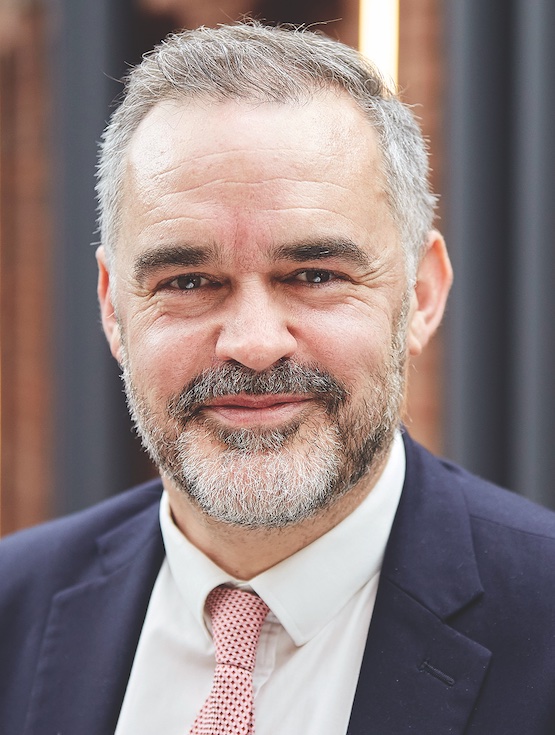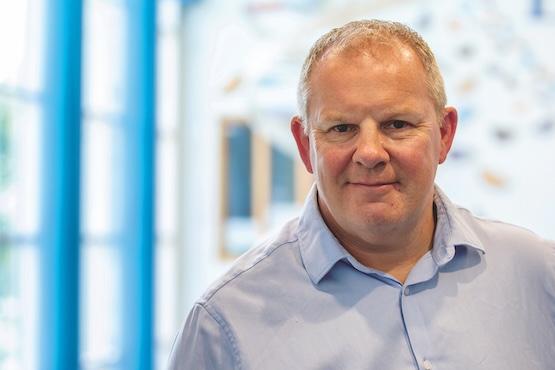Summit 2018 – Caring for the people who care

Working in healthcare can be emotionally exhausting, even occasionally traumatic, but many staff don’t get the chance to deal with the emotional burden of their work, Summit delegates attending a Management Life workshop heard.
Kate Milton, who leads work on staff experience for NHS England, said the pace of life in the NHS meant staff often struggled to find time “for a quiet word with their manager, a few minutes to unwind and prepare for the rest of the shift, or a more formal debrief”.
NHS England is working to change that, she said, through a project examining the relationship be-tween the patient and staff experiences of care, which uses “powerful stories” to highlight the emotional impact of caring on staff.
By examining the experiences staff go through when they deliver care, the programme aims to identify ways to improve recruitment and retention, increase efficiency and deliver more innovative approaches to care. A positive staff experience is also linked to fewer medical errors and reduced mortality rates, Milton added.
She warned that failing to address the pressures on staff at work can also hit an organisation’s “bottom line”: around 30% of NHS sick leave is due to workplace stress and recruiting replacements for stressed-out staff who leave costs an average of £4,500 each time.
Milton’s team are looking at a number of initiatives, including adapting commissioning procedures to recognise the need for compassion in the workplace, and a pilot study to examine what matters most to staff. Some of this work involves bringing together staff and patients to discuss their experiences and how they can be improved, Milton said.
The NHS England team are gathering “staff stories” which focus concentrate on the realities of working in the NHS and are designed to provoke discussion on what can be changed. Leaders have a key role in this, Milton explained, because compassionate leadership is important in shaping culture. “Leaders needs to pay attention to staff, to understand their challenges and difficulties, empathise with them and ultimately take thoughtful appropriate action,” she said.
In discussion with delegates, Milton and her colleague Michail Sanidas suggested board meetings in NHS organisations should discuss stories from staff as well as patients, and that the Care Quality Commission should include compassionate leadership as a factor in assessing the standard of leader-ship in NHS organisations.
|
MiP Chief Executive Jon Restell responds to Health Secretary’s package of NHS reforms.
15 November 2024
| By Jon Restell
News
|
|||||
|
The new government has an ambitious ten-year plan to transform the NHS by shifting care closer to home and tackling the UK’s poor record on public health and prevention. But with multiple short-term challenges and little money to spend, ministers will need more than goodwill and good intentions if they’re to turn those ambitions into reality.
15 October 2024
| By Sarah Woolnough
Analysis & opinion
|
|||||
|
Agenda for Change, introduced 20 years ago, was supposed to put an end to inconsistency and unfairness in how NHS staff are paid. But staff shortages and tight budgets mean many staff are now graded below the level of the work they’re doing. It’s time to modernise the system, says Rhys McKenzie.
07 October 2024
| By Rhys McKenzie
Feature
|
|||||
|
Steve McManus’s work developing the leaders and managers the NHS needs for the 21st century has caught the eye of national leaders. The Royal Berkshire trust chief executive talks to Matt Ross about transforming services, developing leaders and the right way to regulate the management profession.
24 September 2024
| By Matt Ross
Interview
|
|||||
|
MiP has welcomed moves to speed up pay progression for Band 8 and 9 managers and tackle long-standing problems with the Agenda for Change pay system that deter staff from seeking promotion.
23 September 2024
| By MiP
News
|
|||||
|
Special Report: People in public-facing jobs are being confronted by more violence and abuse at work, and the NHS is at the sharp end. Existing policies are failing – we need a more co-ordinated and energetic approach to tackle the root causes and protect the staff who care for others.
18 September 2024
| By Craig Ryan
Feature
|
|||||
|
MiP has welcomed a 5% pay rise for very senior and executive senior managers in the NHS in England, after the UK government accepted the latest recommendations from the Senior Salaries Review Body (SSRB).
09 September 2024
| By MiP
News
|
|||||
|
MiP has welcomed the 5.5% pay rise for NHS staff on Agenda for Change as “a notable shift” and a “good starting point” for future negotiations.
04 September 2024
| By MiP
News
|
|||||
|
Reflecting on our own assumptions and behaviour is the first step towards inclusive leadership, writes Ramima Khanam. By putting ourselves in other people’s shoes and learning from conversations we can help to create more inclusive and productive workplaces.
18 July 2024
| By Ramima Khanam
Feature
|
|||||
|
Being made redundant or looking for work in later life can be an unsettling experience. Lucy Standing, co-founder of older workers support network Brave Starts, gives her tips on how to explore your options and boost your chances of finding the job you want.
12 July 2024
| By Lucy Standing
Tipster
|
|||||
|
Related News
-

MiP responds to the abolition of NHS England
Government risk repeating same mistakes as Lansley by abolishing NHS England and cutting more staff from ICBs, says MiP.
-

NHS England and central staff could be cut by 50%, NHSE has announced
Government planned cuts at NHS England go much further than previously announced, with up to 50% of staff at risk.
-

New MiP survey shows growing support for principle of regulating managers, but warns it won’t improve patient safety
MiP’s member survey on regulating NHS managers shows managers are still not convinced regulation will improve patient safety or raise standards, despite growing support for it in principle.









